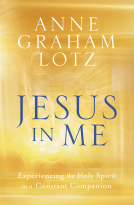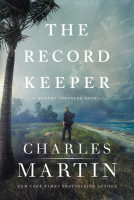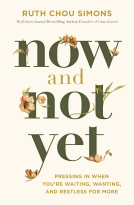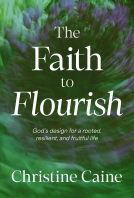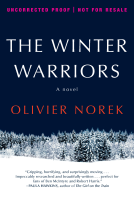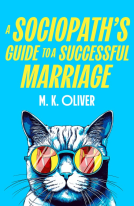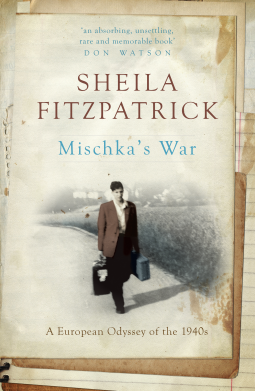
Mischka's War
A European Odyssey of the 1940s
by Sheila Fitzpatrick
This title was previously available on NetGalley and is now archived.
Buy on Amazon
Buy on BN.com
Buy on Bookshop.org
*This page contains affiliate links, so we may earn a small commission when you make a purchase through links on our site at no additional cost to you.
Send NetGalley books directly to your Kindle or Kindle app
1
To read on a Kindle or Kindle app, please add kindle@netgalley.com as an approved email address to receive files in your Amazon account. Click here for step-by-step instructions.
2
Also find your Kindle email address within your Amazon account, and enter it here.
Pub Date Jul 03 2017 | Archive Date Jul 17 2017
Description
On a winter's day in 1943, 22-year-old Mischka Danos chanced on a terrible sight as he skied through Latvian woods—a pit filled with the bodies of Jews killed by the occupying Germans. The world was full of such atrocities, which makes Mischka's decision to escape conscription to the Waffen-SS by going on a student exchange to Germany all the more remarkable. Even more so when Mischka later discovered he was part-Jewish.
But his was no ordinary life. He narrowly escaped death in the Allied fire bombing of Dresden. He then lived the precarious life of a Displaced Person in occupied Germany before heading north with the hope of crossing the border into Denmark, where he finally reunited with his mother Olga. He went on to become a member of the exceptional Heidelberg school of physics. They were both resettled in the US at the beginning of the 1950s, which is where, much later, he met, fell in love with and married Sheila Fitzpatrick.
Fitzpatrick pieces together her late husband's story through diaries, correspondence and recollections: 'This is a historian's book but it's also a wife's book about her husband ... an offering of love that is also a search for knowledge.'
But his was no ordinary life. He narrowly escaped death in the Allied fire bombing of Dresden. He then lived the precarious life of a Displaced Person in occupied Germany before heading north with the hope of crossing the border into Denmark, where he finally reunited with his mother Olga. He went on to become a member of the exceptional Heidelberg school of physics. They were both resettled in the US at the beginning of the 1950s, which is where, much later, he met, fell in love with and married Sheila Fitzpatrick.
Fitzpatrick pieces together her late husband's story through diaries, correspondence and recollections: 'This is a historian's book but it's also a wife's book about her husband ... an offering of love that is also a search for knowledge.'
Available Editions
| EDITION | Other Format |
| ISBN | 9780522867855 |
| PRICE | A$34.99 (AUD) |
Average rating from 9 members
Readers who liked this book also liked:
This Far
Allison Holker
Biographies & Memoirs, Health, Mind & Body, Parenting, Families, Relationships
Allison Holker
Biographies & Memoirs, Health, Mind & Body, Parenting, Families, Relationships
A Sociopath’s Guide to a Successful Marriage
M. K. Oliver
General Fiction (Adult), Humor & Satire, Mystery & Thrillers
M. K. Oliver
General Fiction (Adult), Humor & Satire, Mystery & Thrillers



